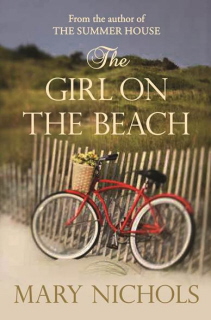- Farewell
- Introduction
- All Mary's Books
- Coming Soon
- More about Mary Nichols
- Links
- Search
- Contact Me
- Acknowledgments
- Blogs
- Most recent blogs
- Archive
- 2014
- 2013
- Building family anecdotes into a novel
- Collective Noun for a group of Romantic Novelists
- Village Brickmaking
- Writing Historical Novels for Mills & Boon
- Plot and Character in Historical novels
- Norfolk roots
- Developing that first Idea
- A Weekend to Remember
- Writing and Selling historical novels
- Using the Second World War as a setting
- What makes a good novel
- Doing the Research
- Spring in the Garden
- Historical novels: getting the setting right
- Writing Novels set against an historical background
- Mothers' Day
- Romantic Novelists' Association Annual Awards
- Shortlisted
- Do you need to be a historian to write historical novels
- 2012
Building Family Anecdotes into a novel
Tue, 10/12/2013 - 15:57 — Mary
This is the eleventh of my monthly blogs for writinghistoricalnovels.com.
 If you are writing historical fiction about a time within living memory, then talk to people who were there and ask questions. What can our parents and grandparents tell us about life as it was? I think it is a pity we don’t do this more often, even if we aren’t writing a book about it. My husband is very elderly and his short term memory is patchy but he remembers his childhood and war years very clearly.
If you are writing historical fiction about a time within living memory, then talk to people who were there and ask questions. What can our parents and grandparents tell us about life as it was? I think it is a pity we don’t do this more often, even if we aren’t writing a book about it. My husband is very elderly and his short term memory is patchy but he remembers his childhood and war years very clearly.
Over the sixty-three years of our marriage, I have heard his wartime stories many times, but though they might vary in detail as he remembers something new, they are consistent in the story they tell. Two things stand out: his adventures on D-Day and being wounded after he was parachuted into Germany later on in the war. Crossing a ditch he jumped on a mine and was blown sky high, according to witnesses; he doesn’t remember it. He woke up in hospital in England with traumatic loss of memory. Luckily for him it came back after a few days. Stories like that are tucked away in my mind until suddenly they resurface when something triggers them off. It was only recently I began to think of loss of memory as a theme for a book and what better background than the Second World War?
I tried to imagine what it would be like not to remember your own name, where you come from, even whether you are married or not. It must surely affect everything you do and say and think and you would be forever niggling at it, trying to bring it back I did some research about loss of memory which was mostly medical based and way over my head, but I did learn that it is a myth that loss of memory caused by a blow on the head would be cured by another blow. It is more likely to make it worse. The most likely scenario for the return of memory would be if the person concerned was put in a similar situation to the one that caused the loss in the first place.
When war breaks out, Julie Walker, not long married, is left to cope with wartime London and bring up her baby without Harry, her husband, who has joined the RAF. She is caught out in an air raid and directed to a shelter which receives a direct hit. Pulled out alive but injured, she is taken to hospital, but she has lost her memory. She cannot tell them who she is, where she lives or even if she has a family. (I had her pawn her wedding ring to buy black market food for her baby, so it would be assumed she was single.) She is given a new name and must make a life for herself as Eve Seaton. Harry, who believes his wife and child have been killed, must put his grief behind him and get on with his part in the war as a radio operator in a bomber crew. Julie is disturbed by flashes of memory, little things that confuse her more than enlighten her and she wonders what dreadful secret her loss of memory is hiding. When it eventually comes back she is left with a dilemma. Is she Julie Walker, married to Harry, or is she Eve Seaton, a sergeant in the WAAF, engaged to Alec Kilby? And who is buried in the grave alongside her son?
Alec is in the parachute regiment and I called on the experiences of my husband for Alec’s training and his D-Day experiences. I still had lots of research to do: WAAF training and the jobs they were likely to be called on to do, RAF bomber command and wartime factory work. Then I had to get the timeline of real events and fictional events to bond. The result was The Girl on the Beach, published by Allison and Busby in 2012.
You will find more details on my website. Click on All Mary's Books>Saga/Mainstream
***
